Torrance Workplace Brain and Head Injuries Lawyer
Workplace brain and head injuries can occur in various ways, such as slips and falls, motor vehicle accidents, or being struck by an object. These injuries range in severity from slight concussions to much more harmful traumatic brain injuries. Symptoms may include dizziness, headaches, difficulty concentrating, memory loss, and changes in mood or behavior. Sometimes, brain and head injuries can cause long-term disability or even death. Therefore, if you or someone you love has suffered a brain or head injury in a workplace accident, get medical attention and consult with a lawyer who specializes in workplace injury cases to understand your legal rights and options for seeking compensation.
At Pratt Law Corporation, we are dedicated to helping victims of workplace brain and head injuries obtain the compensation they deserve in Torrance, CA. Our experienced attorney will take the time to understand your case, explain the legal process, and work with you to craft the best legal strategy for achieving a favorable outcome. We know how difficult these cases can be, and we are committed to advocating for your rights throughout the process. So, if you or a family member has suffered a workplace head or brain injury, contact Pratt Law Corporation today for a consultation.

What Are Some Reasons Brain and Head Injuries Occur?
There are many different reasons why brain and head injuries may occur in the workplace. However, some common causes are:
- Falls. They are a leading cause of brain and head injuries in the workplace. They can happen when workers slip, trip, or fall from a height, such as when working on a ladder or scaffolding.
- Motor vehicle accidents. Brain and head injuries can occur in motor vehicle accidents while on the job, whether the worker is driving or riding as a passenger.
- Being struck by an object. A falling object or being hit by a moving object, such as a vehicle or machinery, can have a devastating impact on the delicate regions of the skull and can cause serious injury or death.
- Explosions. These occur when combustible materials such as chemicals, gasses, and other substances are mishandled or not properly contained. Their force can create abnormal pressure on the head and brain, leading to lasting health concerns.
- Repetitive trauma. Certain jobs, such as assembly line work, may involve repeated movements that can cause brain and head injuries over time.
- Violence in the workplace. Brain and head injuries can result from violence in the workplace as well, such as assaults or fights that involve physical contact.
No matter how your workplace brain or head injury occurs, you should always get medical attention right away to ensure your health is protected. Only after medical professionals clear you should you seek legal advice from an experienced workplace injury attorney to advance any form of legal action.
What Type of Damage Can a Brain or Head Injury Cause?
Brain and head injuries can create a range of physical, emotional, and cognitive effects, depending on the severity and location of the injury. Some common types of damage that can result from a brain or head injury include:
- Physical effects. These can include loss of consciousness, confusion, seizures, difficulty speaking or communicating, weakness or numbness in the limbs, and paralysis.
- Emotional effects. Brain and head injuries can lead to emotional changes, such as mood swings, irritability, anxiety, and depression.
- Cognitive effects. These can include problems with memory, concentration, and decision-making.
- Sensory effects. Brain and head injuries can cause changes in vision, hearing, taste, and smell.
The extent of the damage caused by a brain or head injury can vary widely, from mild symptoms that resolve quickly to severe, long-term disabilities. Sometimes, brain or head injuries result in permanent brain damage that requires a complete lifestyle change for the injured. Falling victim to this type of injury can be devastating, both for the victim and their family, which is why discussions over earning compensation to accommodate the damages should be taken seriously.
What Compensation Can Be Earned After a Workplace Brain or Head Injury?
If you or someone you love has suffered a brain or head injury in a workplace accident, you may be entitled to financial compensation. This compensation can help cover the costs of medical treatment, lost wages, and other expenses related to the injury.
Several types of compensation may be available to individuals who have suffered a workplace brain or head injury, including:
- Medical expenses. This can include the costs of hospital stays, surgeries, medications, and rehabilitation.
- Lost wages. If you cannot work due to your injury, you may be entitled to compensation for the wages you would have earned during your recovery period.
- Pain and suffering. You may be able to receive compensation for the physical pain and emotional suffering caused by your injury.
- Loss of consortium. If your injury has affected your ability to have a relationship with your spouse or family members, you may be able to receive compensation for the loss of consortium.
- Wrongful death. If someone you love dies as a result of a workplace brain or head injury, the surviving family members may be able to receive compensation for their loss.
The amount of compensation you may be entitled to will depend on your case’s specifics and the laws in your state. Therefore, it’s important to consult with a lawyer who specializes in workplace injury cases to understand your legal rights and options for seeking compensation.
Tips to Avoid Brain or Head Injuries at Work
Individuals and employers can take several steps to help prevent brain and head injuries in the workplace:
- Wear protective gear. Depending on the nature of the work, this may include hard hats, helmets, face shields, or goggles.
- Use caution when working at heights. This includes using proper fall protection equipment and following safe practices when working on ladders or scaffolding.
- Follow safety protocols. Employers should establish clear safety protocols and procedures, and employees should follow them to help prevent brain and head injuries.
- Use caution when handling heavy objects. Employees should use proper lifting techniques and ask for help to avoid strains or injuries.
- Keep the workplace clean and organized. A cluttered or poorly maintained workspace can increase the risk of slips, trips, and falls.
- Report any hazards. If you notice any potential hazards in the workplace, report them to your supervisor or the appropriate person to address them.
By taking these precautions, individuals and employers can help reduce the risk of brain and head injuries in the workplace, keeping everyone safe and productive for years to come.
What Happens if a Workplace Brain or Head Injury Is not Reported?
Always report a workplace brain or head injury right away, even if the symptoms seem mild. Failing to report a workplace injury can have several consequences, including:
- Delayed treatment. You may be delaying necessary medical treatment by not reporting an injury. This can create more serious health complications and a longer recovery period. For example, a mild concussion may become a severe traumatic brain injury if left untreated.
- Loss of benefits. Sometimes, failing to report a workplace injury can cause the loss of workers’ compensation benefits. For instance, if you wait too long to file a claim, your employer may be able to deny the personal injury claim or be better positioned to dispute the claim with their insurance provider.
- Difficulty proving the injury was work-related. If you do not report an injury right away, it may be more challenging to verify that the injury was work-related and to seek compensation for your medical expenses and other damages. For instance, if you wait to report the injury for a few days or weeks, it may be more challenging to determine the cause of the injury and provide proof that it occurred while you were working.
For these reasons, it’s important to report a workplace brain or head injury as quickly as possible and to seek a doctor’s care if necessary. This will help ensure that you get the treatment you need and protect your rights to workers’ compensation and other benefits.
What Makes a Strong Torrance Brain Injury Attorney?
Several qualities can make a brain injury attorney strong and effective:
- Experience. An experienced brain injury attorney will have a track record of successful cases and a deep understanding of the legal process.
- Knowledge of brain injury law. A strong brain injury attorney will be well versed in the laws related to brain injuries and understand how to apply them to your case.
- Resourcefulness. A strong brain injury attorney will have a network of experts and resources that can help build your case and attain the compensation you should get.
- Compassion. A brain injury can significantly impact a person’s life, and a strong attorney will have compassion for their clients and understand their challenges.
- Strong communication skills.: A strong brain injury attorney can effectively communicate with their clients, other attorneys, and experts to build a strong case.
- Persistence. A strong brain injury attorney will persistently fight for their clients’ rights and will not back down in the face of challenges.
By choosing an attorney who has these qualities, you can increase your chances of a successful outcome in your brain injury case.
Will I Need to Go to Court for a Brain or Head Personal Injury Claim?
Whether you will need to go to court for a brain or head injury depends on the specifics of your case. Sometimes, resolving a brain injury claim may be possible through negotiations with the responsible party or their insurance company. However, if the parties cannot reach an agreement, it may be necessary to go to court to seek compensation.
If you do need to go to court, your attorney will represent you and handle the legal proceedings on your behalf. This can include gathering evidence, preparing legal documents, and arguing your case before a judge or jury.
It’s important to remember that every case is different, and it’s not always possible to predict whether or not you will need to go to court. Therefore, it’s important to work closely with your attorney to understand your options and make the best decisions for your case. This will ensure that you are fully informed and can make the correct decisions for you.
How Much Does a Head or Brain Injury Claim Cost?
The cost of a brain or head injury claim will depend on various factors, including the severity of the injury, the complexity of the case, and the amount of compensation sought. In general, the cost of a brain injury claim can include the following:
- Legal fees. These are the fees charged by your attorney for their time and services. Brain injury attorneys may charge hourly rates, contingency fees (a percentage of the settlement), or a flat fee.
- Medical expenses. These can include the costs of hospital stays, surgeries, medications, and rehabilitation.
- Expert witness fees. Sometimes, hiring expert witnesses to testify on your behalf may be necessary. These experts may charge fees for their time and services.
- Other expenses. Additional expenses may be associated with your brain injury claim, such as the cost of hiring a private investigator or obtaining medical records.
The costs of a brain injury claim can vary widely and may depend on the specifics of your case. Therefore, it’s a good idea to discuss the potential costs of your claim with your attorney before proceeding. Some accident attorneys may offer free initial consultations, during which you can discuss your case’s costs and potential outcomes.
Contact Pratt Law Corporation Today
If you or someone you love has suffered a brain injury due to someone else’s negligence, you need compassionate and experienced legal help. Contact Pratt Law Corporation today. Our experienced attorneys have the skills, knowledge, and resources necessary to build your case and attain the compensation you should get. We understand the challenges of brain injury cases and are dedicated to providing you with the highest quality legal representation. Get in touch with us today to set up an initial consultation. We look forward to helping you fight for justice.




